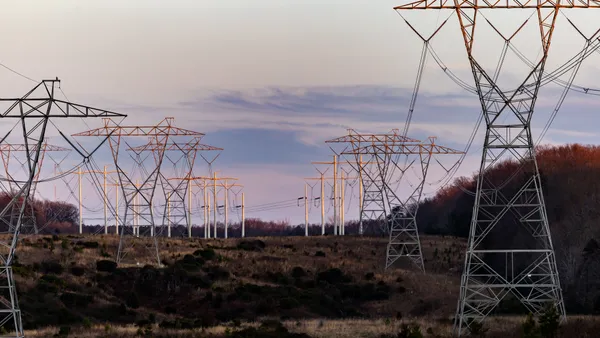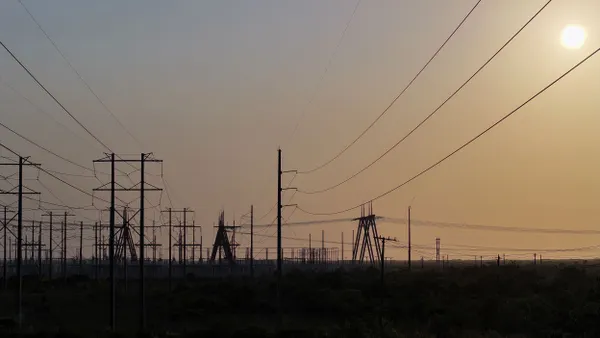Dive Brief:
- The Federal Energy Regulatory Commission's recent actions interpreting the Natural Gas Act and the Federal Power Act "freeze out the states," Democratic Commissioner Rich Glick told a crowd of state energy officials on Wednesday.
- Glick was the sole dissenting voice on the commission for a number of opinions, including the order establishing a Minimum Offer Price Rule (MOPR) in the PJM Interconnection, which would force resources that receive state subsidies, like renewables and nuclear energy, to bid into the capacity market at a higher price level. He believes FERC acted outside of its jurisdiction through the order.
- Scheduling for the rehearing decision on the MOPR will be determined by Chairman Neil Chatterjee. FERC faces a backlog of other requests for rehearings on orders, and stakeholders cannot litigate matters under the Federal Power Act or Natural Gas Act until a rehearing decision is made.
Dive Insight:
FERC faces several rehearing requests on the MOPR decision, including from PJM, regarding the balance between state and federal interests, although it has been also been defended by many generators in the region.
"The Federal Power Act is very clear, it says that the states have jurisdiction over resource decision making, not the federal government, and certainly not FERC," Glick said during the conference for the National Association of State Energy Officials.
"I can't recall anything the agency has ever done that is so intrusive to states' rights," Rob Gramlich, president of Grid Strategies and former economic advisor to FERC ex-chair Pat Wood, told Utility Dive.
However, some stakeholders and analysts have deemed the MOPR as a necessity to stop the influence of "outside market forces."
The MOPR will "send a positive signal for PJM capacity market prices and generators" in the near term, rising $20-30 per MW-day for the 2022/2023 auction, according to a spokesperson from global consulting firm ICF, which would lead to higher reserve margins in PJM, as supported by the higher capacity prices.
FERC's December order "only impacts PJM’s capacity, which has a minimal impact on renewable projects," Tom Rumsey, senior vice president for external and regulatory affairs at Competitive Power Ventures and former New York ISO executive, said in an email.
While the generating company has some wind energy currently in its portfolio, its assets are mainly combined-cycle gas plants. "We are very bullish on our renewable pipeline and will be announcing [a] significant development next week. Protecting markets from out-of-market subsidies and putting a price on carbon will drive a lower carbon energy future," he added.
Companies like Competitive Power Ventures, supporting MOPR, will draw their own line for what is an acceptable way to modify state actions, Gramlich said.
"FERC failed to find a new rational line to draw [between state and federal jurisdictions]... there is no right place to draw the line once you shift it from what the Federal Power Act currently says," he added.
Glick also told reporters there are conversations in very early stages about broader rulings on regional transmission organizations (RTOs), outside of FERC's responses to individual filings by grid operators. "We can't continue doing what we're doing because the future of the RTOs are at stake," he said, acknowledging that his colleagues might disagree.
The commissioner sees legal vulnerabilities in the MOPR.
"I think there's several items or errors in the Commission's order that courts could easily overturn that decision," he told reporters.
"It's better for everybody given the uncertainty [to have] a speedy rehearing request and then get [the MOPR decision] into court and get it decided as soon as we can," Gramlich said, adding that one or two capacity auctions may occur in PJM before the matter is settled. "I don't know how any investor would invest on the basis of where things stand now."














